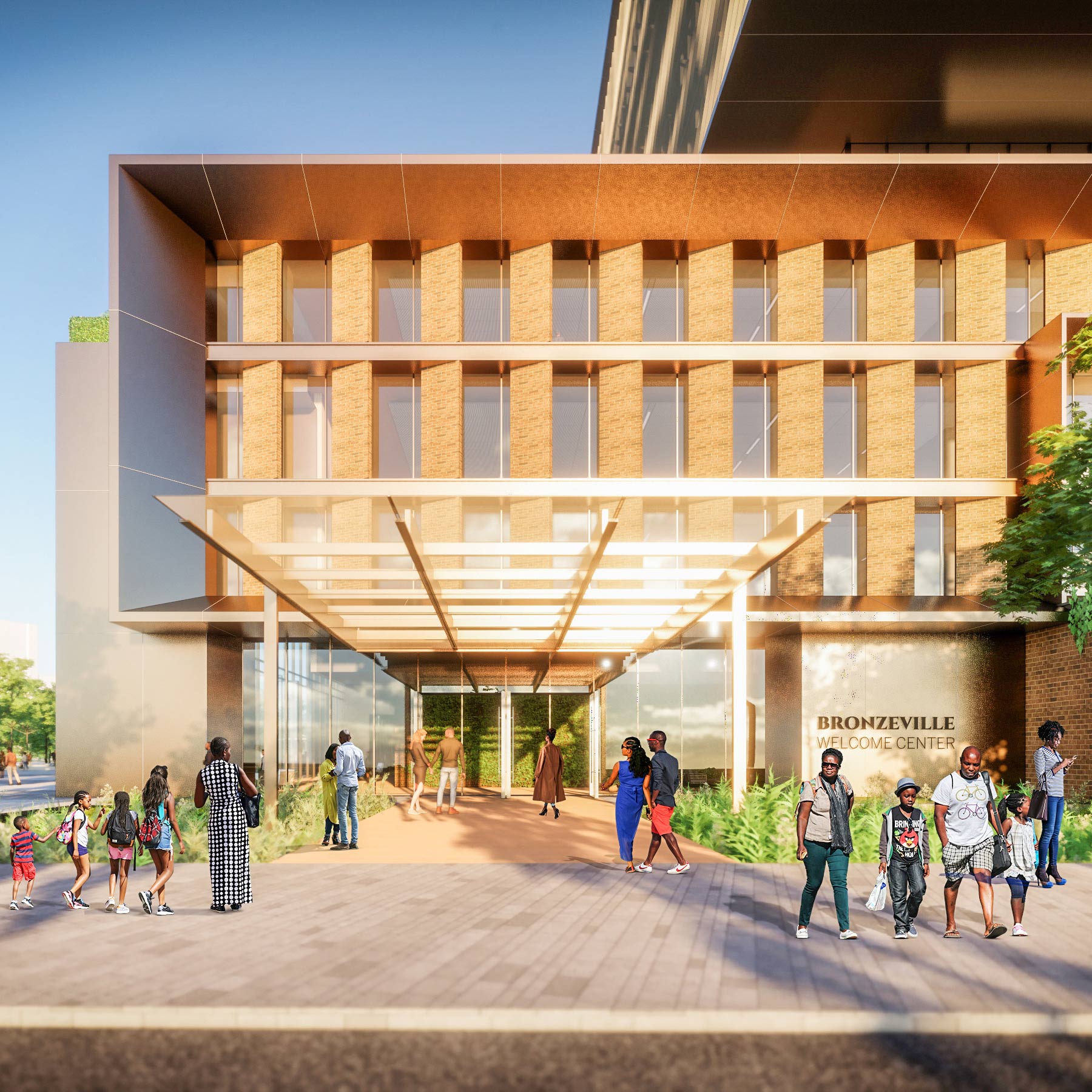
Team Overhauling Former Michael Reese Site Aims for Community Connections
Nick Blumberg | April 6, 2021 8:57 pm
After more than a decade of sitting unused, the former Michael Reese Hospital site in Bronzeville on the city’s South Side appears headed for redevelopment.
Earlier this year, the Chicago Plan Commission approved a $3.8 billion effort to overhaul the property, which sits just west of the lakefront along 31st Street.
After more than a decade of sitting unused, the former Michael Reese Hospital site in Bronzeville on the city’s South Side appears headed for redevelopment.
Earlier this year, the Chicago Plan Commission approved a $3.8 billion effort to overhaul the property, which sits just west of the lakefront along 31st Street.
The hospital, founded in 1881, was one of Chicago’s oldest until its 2009 demolition. The city bought the 50-acre property as it was prepping for its failed 2016 Olympic bid. Since then, it’s been floated as a possible location for everything from Amazon HQ2 to the Lucas Museum to a Chicago casino.
In 2017, the city picked a team of developers to take over the site and create a master plan for a massive, mixed-use development known as Bronzeville Lakefront.
“We knew the potential of this site, and what it really could mean for the entire South Side and the people who are most vulnerable in our city who need it most,” said Morgan Malone, director of development and external affairs at Farpoint Development, the project lead.
The first phase of the redevelopment is set to include the ARC Innovation Center, an equity-focused research arm of Israel’s renowned Sheba Medical Center. ARC’s mission is to make health care accessible – and the designers of the Bronzeville Lakefront site say the building will reflect that.
“It frames a literal gateway into the development,” said Mark Nagis of Skidmore, Owings & Merrill. “It also frames a gateway toward the Singer Pavilion, which is a historic building we’re choosing to preserve and keep on the site.”
Urban designers and architects are working to reimagine just about every facet of the massive site. “Everything from roads to parks to blocks to uses, what the place should look and feel like, and then how it should connect back to the surrounding community,” said SOM’s Doug Voigt.
And the developers and designers working on the project say the community has played an integral role, not just in terms of a one-and-done town hall meeting. Ald. Sophia King, 4th Ward, put together a Michael Reese Advisory Committee to weigh in on every step of the process.
“For many of us who live on the South Side, this is long overdue,” said architect and interior designer Kimshasa Baldwin, who serves on the committee. “I think the development team is taking very seriously what they’re contributing to the neighborhood … once this is done, I think (it) will set a new standard for development on the South Side.”
Urban designer Dawveed Scully is a South Side native and a graduate of Illinois Tech, just a mile away from the site. He says true community engagement is a way to not just win support, but to create something that feels like it’s part of Bronzeville.
“You always want to be working with (the) community … to create something that’s more than the sum of the parts,” Scully said. “It’s not just a new building here and a new park here. Those actually have tangible meaning for the neighborhood.”
In addition to the ARC Innovation Center, the site is also slated to have market rate and affordable housing, including for seniors, retail with discounted rent for some local businesses, green space and a community center.
“The folks here in the community need to feel like it’s part of Bronzeville, it’s not a separate district, it’s not a gated community,” Scully said. “That connection brings me joy personally.”
Farpoint’s Morgan Malone says she hopes the community centric approach can serve as a model beyond this project.
“It may seem hard, it may seem too complex. When you put people first you can win, you can do it, it can be financed … and everyone will benefit,” Malone said. “We’re excited to prove it.”
The master plan still has to clear other key committees and the full City Council. The development team hopes to complete the $600 million phase one by 2026. The redevelopment of the full site is expected to be a two-decade effort. But the advisory committee’s Kimshasa Baldwin says if you haven’t spent much time in the area, you don’t have to wait.
“Come on down, come hang out!” she laughed. “Bronzeville has spirit, it has soul – approachable soul, I should say. It’s not an area where you come into it, but you feel like an outsider. When you come into this community, you’re welcome.”